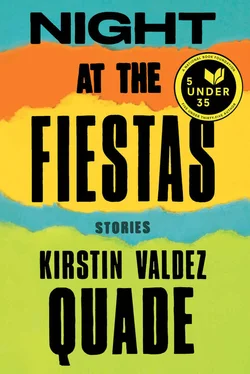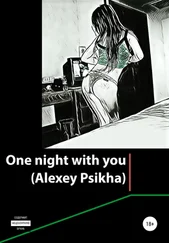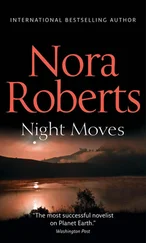Monica looked up at the back of her daughter’s dark, disapproving head on the crumpled pillow.
Well, hadn’t Monica done her best to undo all that? It hadn’t been easy to leave Peter, and it certainly hadn’t been easy dating with a child. Regardless of how pretty you might be, add a kid to the mix and your value plunged. Surely she deserved some credit. She was lucky: Elliot Rios was brilliant, attractive, a good person. And most important, he was good to Cordelia. He’d bought her a globe for her birthday, let her wear his hand lens around her neck so she could inspect rocks and dirt. He’d made her a geology kit in a canvas sample bag with her name on the label. It contained sample bags, a Sharpie, a bottle of weak acid to test for calcite, and a roll of pH paper. Before she or anyone else drank anything, Cordelia determined its pH: Folgers coffee, milk, apple juice. “Really yellow,” she’d announce before quaffing her juice with gusto. “Pure acid.” Cordelia might take Elliot’s kindness to her for granted, but Monica didn’t have that luxury.
They’d had idyllic evenings together, evenings Monica could never have imagined when she was seventeen: the four of them clustered around the hissing Coleman lantern with its glowing green mantle, Beatrice nursing, Cordelia absorbed in her workbooks, filling in boxes and pasting stickers. Elliot would tell Monica about the things he’d found in the desert: a concrete Jesus in a gulch fifty miles from the nearest settlement, a fossilized camel jaw, pieces of a crashed World War II fighter plane. And she would tell him about the old man at the Lucky Token who’d called her a sight for sore eyes, or how Cordelia had made a name for herself at school for knowing to use a hyphen when she could not fit the word into the end of the line.
Certainly these were pleasures her mother would never understand with her cheap ideas about success and her determined pursuit of gaiety. Monica’s mother: hell-bent on having the things that were unimaginable in the ranching town where she’d grown up, liquor cabinets and televisions and shag carpeting. Monica couldn’t leave that desperation behind fast enough.
Tonight, Monica decided, they’d all sleep in the foldout bed together, the whole family, warm and close. She longed for Elliot so deeply her throat ached.
“When you grow out of it, can I have your dress?” Cordelia’s voice was gruff, her head still turned away.
“Sure,” said Monica, feeling as though she’d won an argument. “But I don’t intend to grow out of it.”
AT FIRST MONICA THOUGHT the knocking was the wind, and then with a surge of fear, the NASA engineer, come to get her. She felt naked in the dress and pulled on her vest.
“Who could it be?” she asked Cordelia theatrically, heart pounding. She glanced at the knife drawer.
On the step stood a little girl. She was wearing a purple coat fringed with dingy fake fur on the hood; the hood was down and the coat unzipped, and in her hand she carried a smudged pink backpack. This was Amanda, from across the way, and Monica smiled with relief, remembering the pale watching face and her own absurd fear.
Monica knew Amanda from the schoolbus stop, where (while Cordelia fussed over Beatrice, sneaking looks at the older kids) Amanda’s big brother whipped at the ground — and Amanda — with a dangerous length of rope. She lived crammed in with her enormous relatives: parents, grandmother, uncle, brother. Amanda alone was thin, skinny, really. She reminded Monica of the baby orangutan at the Albuquerque zoo, startled-looking and wiry, bounding over her parents, who sat slumped and shapeless on the bare concrete floor.
“Amanda. Hi. What can I do for you?”
Amanda looked past Monica, as if waiting for the person she really wanted. Or maybe she was simply curious about how they lived. Wouldn’t Monica like a peek into Amanda’s trailer? — provided, of course, she wouldn’t have to interact with anyone. But to walk around, inspect their things, judge — of course she’d like that.
Monica stepped aside to let the girl in from the wind, and, when Amanda entered without hesitation, reminded herself to warn Cordelia never to set foot in anyone’s home alone, ever.
Amanda surveyed the trailer: the Riverside Shakespeare , Beatrice’s wipes and diapers on the table, Beatrice herself, who’d wakened and stopped mawing her fist to greet Amanda with a pleasured gurgle.
Amanda looked Monica over. “Why are you wearing that?”
“It’s my mom’s best dress,” Cordelia said, clambering down from the loft. “It cost over three hundred dollars.”
Amanda frowned. “What’s she doing here?” she asked Monica.
“I missed the bus,” said Cordelia. She had brightened at the arrival of the older girl. “And Elliot took our car. Are you here to play?”
Amanda didn’t answer, just looked with discontent at her backpack.
“Is everything okay, Amanda?” Monica asked. “Why aren’t you in school?”
Amanda straightened her shirt carefully under her coat, shrugged her skinny shoulders. “Why isn’t she in school?”
Though Amanda was only nine, there was something teenagerish about her, something disturbing and sexual. She wore her sleek dark hair parted on the side, and it slipped off her shoulders and down her back. The white tips of her rather large ears poked though the silky curtain. In October, when it was still hot during the day, Monica had seen her in a bikini, spreading a towel on the hard-packed dirt to sunbathe. Another day, Amanda tucked the hem of her shirt into the neck and pulled it down so that it resembled a bra. Monica had watched over the edge of her book as the girl walked the length of the park, sashaying past the adults. Who knew what went on in that trailer?
Now Amanda bit her lip, looked around critically, then set her backpack on the bench seat and scooted in. She folded her hands on the table.
“Are you sick, honey? If you’re sick, you should probably be home in bed.”
When Amanda didn’t answer, Monica abandoned the role of concerned, motherly neighbor. She sat at the table opposite her, pulled Beatrice to her lap, and waited. Cordelia sat beside Monica and folded her own hands, mirroring the older girl.
Amanda frowned at the baby. “She’s got boogers all over her face,” she said, then seemed to lose interest. “Where’s all your stuff? Don’t you even got a TV?”
“No,” said Monica, the same hint of pride in her voice she always had when asked this. “We don’t watch TV.” Stupid, showing off to a nine-year-old.
“You don’t got heat either?”
“Well,” Monica laughed. “Usually we have heat.”
“It’s broken .” Cordelia shot an accusing glance at Monica. “And anyway,” she told Amanda, placing a protective hand on Beatrice’s forearm, “that’s not boogers. She’s just chapped.”
Amanda pointed to the cardboard box that held Elliot’s soil samples, each tied and carefully labeled. “What’s that stuff?”
“My husband’s samples. He’s a geologist, which means he studies rocks. Geo means rock in Greek.”
To that teachable moment, Amanda made no reply.
Several times over the months, they’d heard Amanda’s mother yelling at her children from across the lot. “You get back here this minute or I don’t want to see your face ’til you’re twenty-one!” She’d shout breathlessly, bracing herself with a hand in the doorway, as if even standing were an enormous effort, and Monica and Elliot would laugh. Elliot did a strangely accurate impression of Amanda’s mother, but made her seem both crazier and shriller than she was.
Funny, only now did Monica feel ashamed, mocking the woman’s impotence, mocking the despair and futility that would lead to such a pointless threat.
Читать дальше












